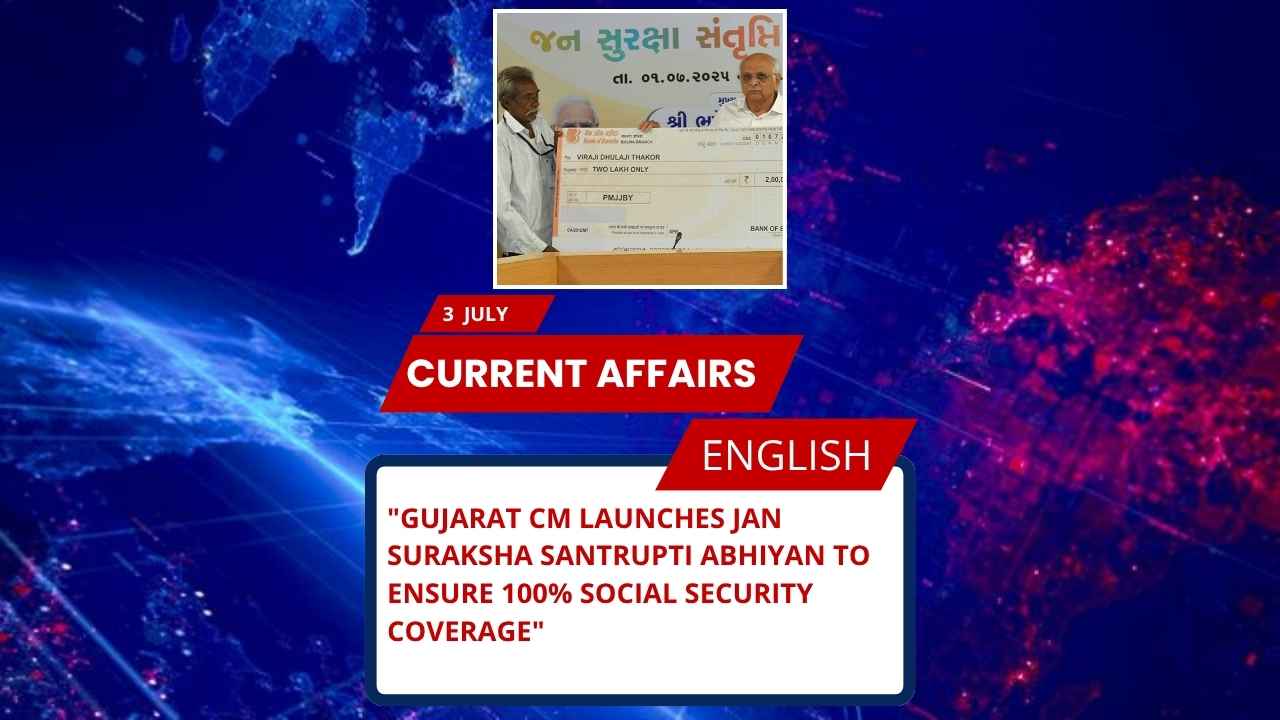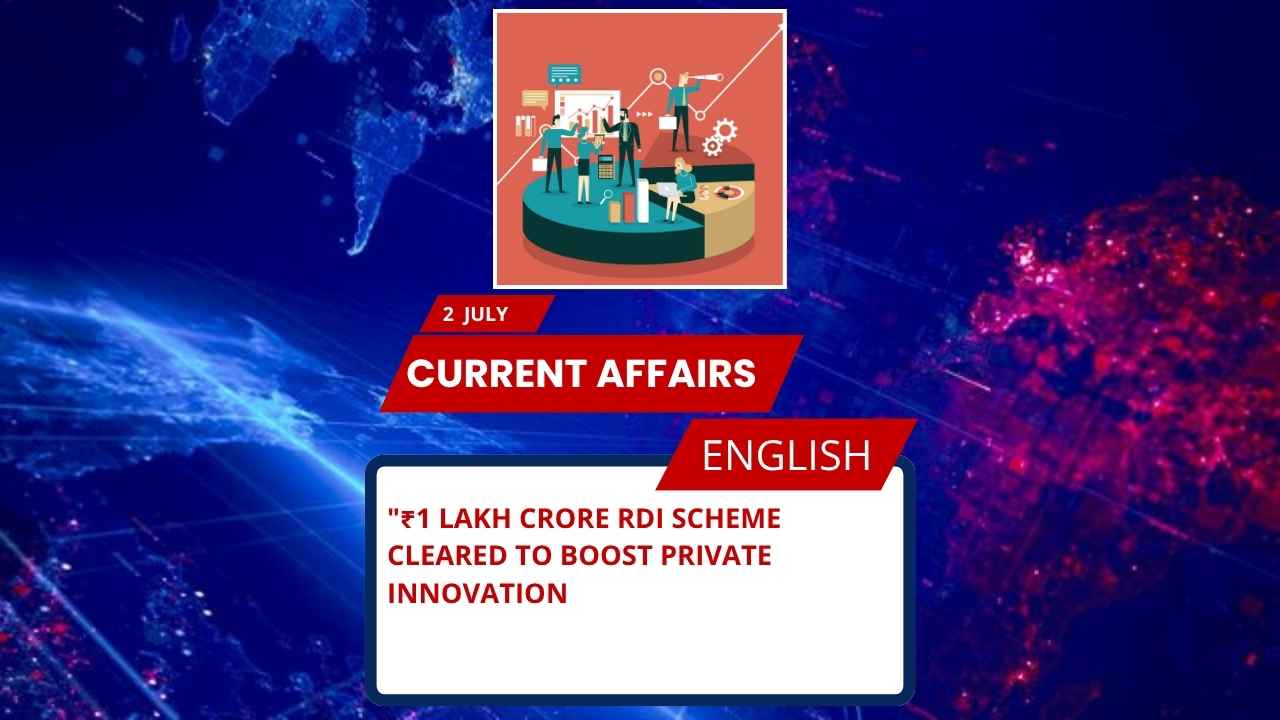
Key Points for SSC, UPSC, and Other Government Exams
- ADB Loan: $109.97 million results-based loan approved for Gujarat.
- Objective: Boost advanced skills, employability, and industry-aligned workforce in Gujarat.
- Focus sectors: Logistics, automotive, manufacturing, IT, renewable energy, healthcare, agri-tech.
- Target: By 2030, train 175,000 disadvantaged individuals; graduate 60,000 with advanced skills.
- Implementing agency: Labor, Skill Development & Employment Department with Kaushalya: The Skill University (KSU).
- Model: Results-based lending (RBL); disbursement linked to measurable results.
- Alignment: National Education Policy 2020, Gujarat Skill Development Plan (2025–2030).
- Inclusion focus: Increased participation of women, socioeconomically disadvantaged groups.
Complete Details
Introduction
The Asian Development Bank (ADB) on 13 June 2025 approved a $109.97 million results-based loan to strengthen Gujarat’s ambition to become a global industrial hub through a future-ready workforce. The initiative is designed to upgrade technical and vocational education, ensuring Gujarat’s young population transforms into a highly skilled, globally competitive labor force.
What is the Gujarat Skills Development Program?
The Gujarat Skills Development Program aims to equip the workforce with industry-relevant advanced skills, supporting employment in seven priority sectors:
- Logistics
- Automotive
- Manufacturing
- Information Technology
- Renewable Energy
- Healthcare
- Agri-tech
The program will upgrade 11 mega Industrial Training Institutes (ITIs), establish centers of excellence, and partner with private training providers through a hub-and-spoke model led by Kaushalya: The Skill University (KSU).
Objectives
- Modernize the TVET ecosystem: Integrate emerging technologies like AI.
- Promote inclusion: Increase participation of women and disadvantaged groups in frontier technology trades.
- Climate focus: Incorporate climate resilience and green building features.
- Certifications: Align courses with international and multinational industry standards.
Implementation
- Results-based lending (RBL): Disbursement linked to outcomes like employability improvement, enhanced governance at KSU, international certification, and better teacher quality.
- By 2030: Train 175,000 disadvantaged individuals, graduate 60,000 with advanced skills, increase female engineering enrollments.
ADB’s Role
ADB, founded in 1966, is a leading multilateral development bank promoting sustainable, inclusive growth across Asia and the Pacific.
Important Facts about Organizations and State
Asian Development Bank (ADB)
- Founded: 1966
- Members: 69 (50 from Asia-Pacific)
- Headquarters: Manila, Philippines
- Focus: Sustainable, inclusive development, quality infrastructure
Gujarat
- Capital: Gandhinagar
- Chief Minister (2025): Bhupendra Patel
- Governor (2025): Acharya Devvrat
- Major Rivers: Narmada, Tapi, Sabarmati
- Important National Parks: Gir National Park, Blackbuck National Park, Marine National Park
MCQs
1. The Asian Development Bank recently approved how much loan for Gujarat’s Skills Development Program?
A) $100 million
B) $109.97 million
C) $150 million
D) $200 million
2. Which university anchors Gujarat’s Skills Development Program?
A) Gujarat Technological University
B) Kaushalya: The Skill University
C) Maharaja Sayajirao University
D) Sardar Patel University
3. Gujarat’s Skills Development Program focuses on how many priority sectors?
A) 5
B) 6
C) 7
D) 8
4. Where is the headquarters of ADB?
A) Tokyo
B) Manila
C) Jakarta
D) Bangkok
5. Who is the current Chief Minister of Gujarat (2025)?
A) Vijay Rupani
B) Bhupendra Patel
C) Anandiben Patel
D) Narendra Modi
UPSC-Style FAQs (Answer Writing Format)
Q1. What is the significance of ADB’s $109.97 million loan to Gujarat in the context of India’s skill development goals?
Answer:
ADB’s $109.97 million loan to Gujarat aligns with India’s broader vision under the National Education Policy 2020 and the Skill India Mission. The initiative is significant because it focuses on creating a future-ready workforce in high-growth sectors such as IT, manufacturing, and renewable energy. By supporting advanced and industry-aligned skill development, the program enhances employability, promotes inclusion of women and disadvantaged groups, and sets up Gujarat as a model for technical and vocational education reform that can be replicated across India. The results-based lending approach ensures accountability and measurable outcomes like better governance, international certification, and climate-resilient infrastructure.
Q2. Discuss how Gujarat’s Skills Development Program contributes to inclusive growth and climate goals.
Answer:
The Gujarat Skills Development Program embodies inclusive growth by aiming to train 175,000 socioeconomically disadvantaged individuals and increasing women’s participation in engineering and frontier technologies. The program’s design promotes equitable access to high-quality training, addressing gender and social disparities in technical education. On climate goals, the program emphasizes climate resilience and green building features, supporting Gujarat’s and India’s broader commitment to sustainable development. Integration of climate-friendly infrastructure in technical institutes aligns skill development with environmental sustainability, contributing to a greener economy while building human capital.
Q3. Examine the role of Kaushalya: The Skill University in the success of Gujarat’s Skills Development Program.
Answer:
Kaushalya: The Skill University (KSU) serves as the anchor institution of Gujarat’s Skills Development Program, implementing the hub-and-spoke model to coordinate between government ITIs and private training providers. KSU is tasked with modernizing curriculum design, ensuring industry alignment, and fostering partnerships with international certifying bodies and multinational corporations. The university’s role is crucial in upgrading institutional capacity, integrating frontier technologies like AI into the training ecosystem, and enhancing governance. As the program’s central body, KSU is pivotal in driving Gujarat’s vision of becoming a global industrial hub through a skilled and competitive workforce.







